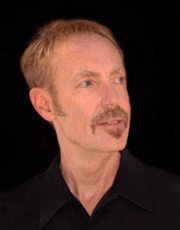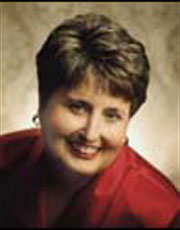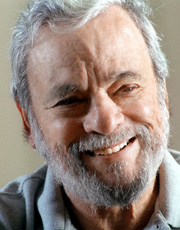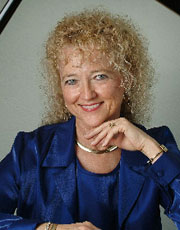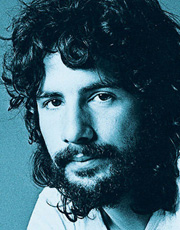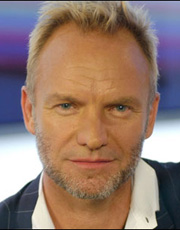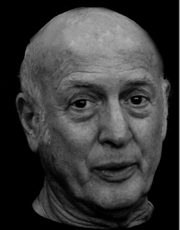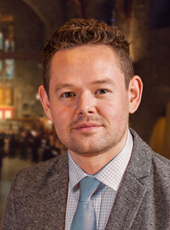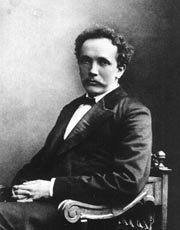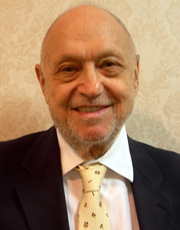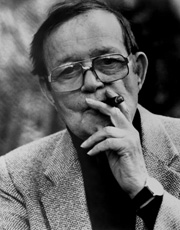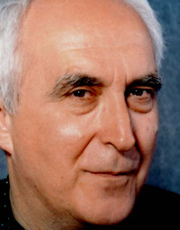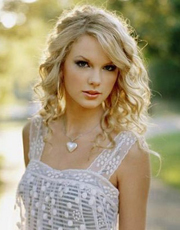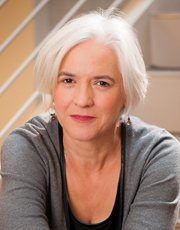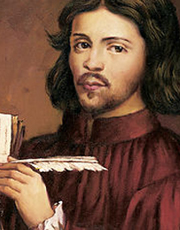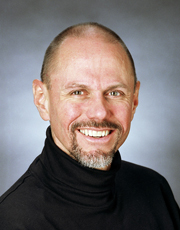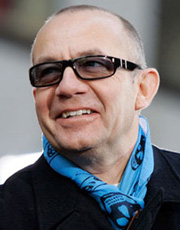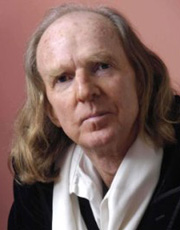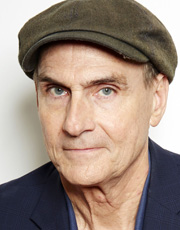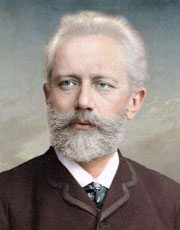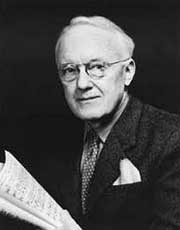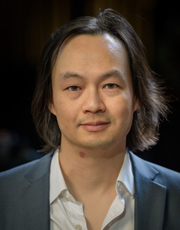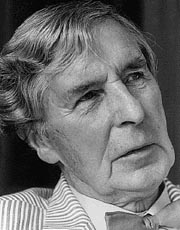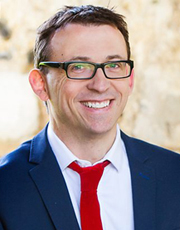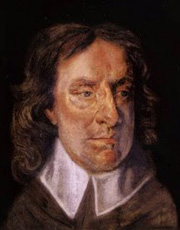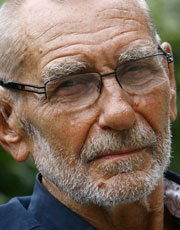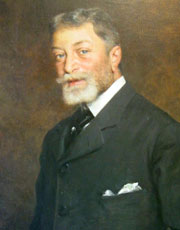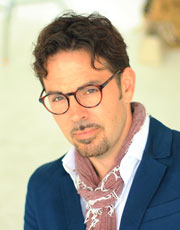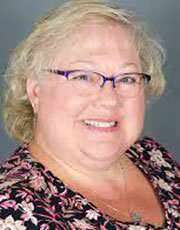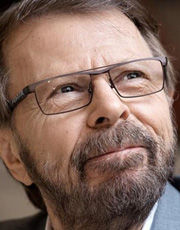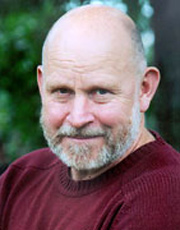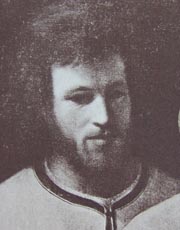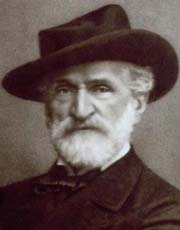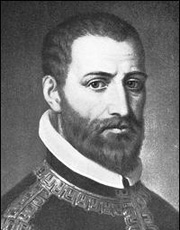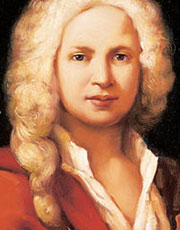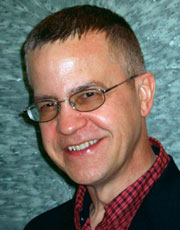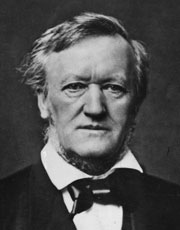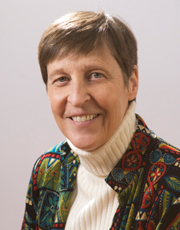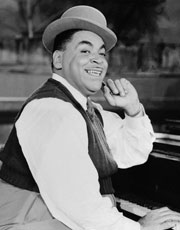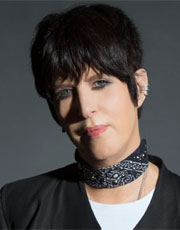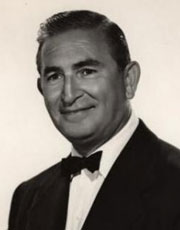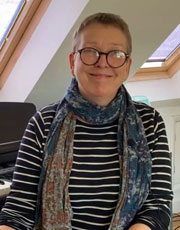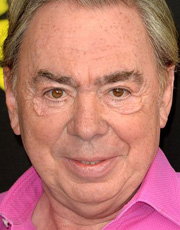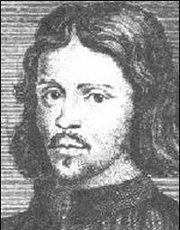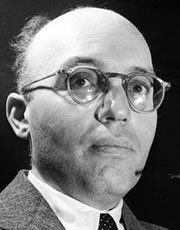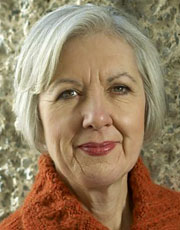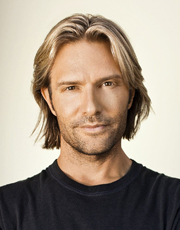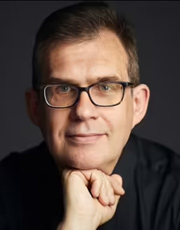In Celebration of the Human Voice - The Essential Musical Instrument
Home | Doo Wop | Barbershop | World | Contemporary | Christian | Vocal Jazz | Choral | Christmas | Instructional | Arrangements
Classical | Opera | Musicals | Personality | Young Singers | Disney | Videos | Songs | The Artists

Choral Composers
So much of what many of us would think of as choral music is traditional, centuries-old works, things our parent and grandparents grew up with, but that’s really not the be-all and end-all of choral works. There are many talented, genius composers of the last century and a bit, who have created some beautiful, stellar works that are being sung by choirs around the world today. Why not check out some of these brilliant men and women’s work? If you’ve never tried modern choral work, you’re in for a lovely surprise. Why not treat yourself to that surprise today?
![]() Composers - Early Music | Classical | 20th Century | Modern
Composers - Early Music | Classical | 20th Century | Modern
Displaying 251 - 300 of 309 items.
Dr. Mark Sirett
Dr. Sirett is an award-winning composer whose works are frequently performed by some of Canada's leading ensembles. Commissions have included works for the National Youth Choir of Canada, the Amabile Youth Singers, Ottawa Regional Youth Choir, Elora Festival Singers, University of Iowa and the Toronto Mendelssohn Choir. As an adjudicator Dr. Sirett served on the Jury of the Cork International Choral Festival in 2009; he has frequently adjudicated choral festivals in Canada including Toronto, Ottawa, Montreal, Edmonton, Calgary and Winnipeg. He has been clinician adjudicator for SingONtario, SaskSings, ChorFest Alberta and ChorFest Manitoba.
Audrey Snyder
Audrey Snyder is a professional composer and arranger with several hundred choral titles currently in print and millions of copies sold, worldwide. Recipient of numerous ASCAP Awards, she is widely recognized as one of the top educational choral writers today. Her original choral compositions and arrangements span the entire spectrum of choral music, from Medieval and Renaissance transcriptions to current pop, from music for children's and middle school choruses to full concert choir, jazz and pop groups. Her published works include choral arrangements of music from movies such as The Lion King and Prince of Egypt, Broadway shows such as Wicked and Phantom of the Opera, and of pop artists and groups such as The Beatles, Elton John, and Josh Groban. Her original choral music is in huge demand and often reflects a rare beauty, simplicity and charm. She has appeared internationally as clinician and choral educator, and at ACDA, MENC and music dealer sponsored workshops for many years.
Stephen Sondheim
Stephen Joshua Sondheim was an American composer and lyricist known for more than a half-century of contributions to musical theatre. Sondheim has received an Academy Award; eight Tony Awards (more than any other composer, including a Special Tony Award for Lifetime Achievement in the Theatre); eight Grammy Awards; a Pulitzer Prize, the Laurence Olivier Award, and a 2015 Presidential Medal of Freedom. He has been described by Frank Rich of The New York Times as "now the greatest and perhaps best-known artist in the American musical theater." His best-known works as composer and lyricist include A Funny Thing Happened on the Way to the Forum, Company, Follies, A Little Night Music, Sweeney Todd, Sunday in the Park with George and Into the Woods. He wrote the lyrics for West Side Story and Gypsy.
The composer was president of the Dramatists Guild from 1973 to 1981. To celebrate his 80th birthday, the former Henry Miller's Theatre was renamed the Stephen Sondheim Theatre on September 15, 2010, and the BBC Proms held a concert in his honor. Cameron Mackintosh has called Sondheim "possibly the greatest lyricist ever."
Linda Spevacek
Over the past 2 decades Linda Spevacek has become one of the most successful composers in modern choral music. She has sold more than 7 million copies of over 700 published compositions and arrangements. Linda has continued to keep her compositions original and creative while maintaining the consistency and integrity that has given her a world-renowned reputation. Dynamic, inspiring, creative and expressive are just a few words that describe the level of excellence found in every Linda Spevacek composition, arrangement, seminar and reading session.
In addition, singers from all over the world performed her arrangements twice on the nationally televised 'MENC World's Largest Concert' on PBS. Several of her works have been premiered at annual conventions of the American Choral Directors Association, the Music Educators National Conference and on the 'Hour of Power' at the Crystal Cathedral. Linda was a featured conductor at Carnegie Hall in New York in 1999.
Cat Stevens
Yusuf Islam, commonly known by his former stage name Cat Stevens, is a British singer-songwriter and multi-instrumentalist. His 1967 debut album reached the top 10 in the UK, and the album's title song "Matthew and Son" charted at number 2 on the UK Singles Chart.
Stevens' albums Tea for the Tillerman (1970) and Teaser and the Firecat (1971) were both certified triple platinum in the US by the RIAA. His musical style consists of folk, pop, rock, and Islamic music.
Sting Sting
Gordon Matthew Thomas Sumner, CBE, better known by his stage name Sting, is an English musician, singer, songwriter and actor. He was the principal songwriter, lead singer, and bassist for the new wave rock band The Police from 1977 to 1986, and also launched a solo career in 1985. With The Police, Sting became one of the world's best-selling music artists. Solo and with The Police combined, he has sold over 100 million records. In 2006, Paste ranked him 62nd of the 100 best living songwriters.
Mike Stoller
Leiber and Stoller dawned on the music scene at a time of stylistic rumblings and movement into new territory of popular music, a time when the authentic American rhythm and blues of the black world was beginning to be embraced by the general music-buying public, a time when the phenomenon of crossover became apparent with the daily programming assistance of legendary disc jockeys like Alan Freed, a Cleveland on-air personality who is said to have coined the phrase, rock and roll.
Philip Stopford
Philip has been composing choral music since 1996, mainly for the choirs he was directing. At Oxford, the Keble Missa Brevis was composed for the College Choir and premiered at the service of Corporate Communion in the Chapel followed by formal dinner with visitors from the Keble Parishes. Jesus Christ the Apple Tree and the Keble Canticles (first performed in York Minster) were also written for the College Choir, and the Hymn to the Creator for the final service of Chaplain John Davies.
At Chester Cathedral, Philip composed God be in my head (2000) and A child is born in Bethlehem for the Cathedral Nave Choir. If ye love me and The King of love my shepherd is were composed for the main Cathedral Choir. During this time, Philip also composed the Te Deum (for choir and orchestra) for the Leighton Buzzard Festival Singers 50th Anniversary Concert. The wedding anthem Come down O love divine was written for Hazel and Geoff, associated with Chester Cathedral.
Richard Strauss
(born June 11, 1864, Munich, Ger. - died Sept. 8, 1949, Garmisch-Partenkirchen) German composer and conductor. Son of a horn player, he began composing at age six. Before he was 20, he had already had major premieres of two symphonies and a violin concerto. In 1885 the conductor of the Meiningen Orchestra, Hans von Bulow, made Strauss his successor. Strongly influenced by the work of Richard Wagner, he began to write programmatic orchestral tone poems, including Don Juan (1889), Till Eulenspiegel's Merry Pranks (1894 - 95), and Also sprach Zarathustra (1896). After 1900 he focused on operas; his third such work, Salome (1903 - 05), was a succes de scandale. Elektra (1906 - 08) marked the beginning of a productive collaboration with the poet Hugo von Hofmannsthal, with whom Strauss wrote his greatest operas, including Der Rosenkavalier (1909 - 10). He remained in Austria through World War II and held a music post in the German government, but he was later cleared of wrongdoing in connection with the Nazi regime. After many years writing lesser works, he produced several remarkable late pieces, including Metamorphosen (1945) and the Four Last Songs (1948).
Charles Strouse
Charles Strouse is an American composer and lyricist best known for writing the music to the musicals Bye Bye Birdie and Annie, amongst others. Strouse's first Broadway musical was the 1960 hit Bye Bye Birdie, with lyrics by Lee Adams, who would become his long-time collaborator. For this show, Strouse won his first Tony Award in the category of best musical, and Bye Bye Birdie is considered the precursor of the rock musical. Strouse's next show, All American, with a book by Mel Brooks and lyrics by Adams, came in 1962; it was not a success but it produced the standard "Once Upon a Time" (recorded by Perry Como, Eddie Fisher, Al Martino, Tony Bennett, Frank Sinatra, and Bobby Darin, among others).
Strouse has won Emmy Awards for music in television adaptions of Bye Bye Birdie and Annie. He is also the recipient of the ASCAP Foundation Richard Rodgers Award and the Oscar Hammerstein Award. He is also a member of the Theater Hall of Fame and the Songwriters Hall of Fame.
Jule Styne
Styne was a vocal coach for 20th Century Fox, until Darryl F. Zanuck fired him because vocal coaching was "a luxury, and we're cutting out those luxuries" and told him he should write songs, because "that's forever". Styne established his own dance band, which brought him to the notice of Hollywood, where he was championed by Frank Sinatra and where he began a collaboration with lyricist Sammy Cahn, with whom he wrote many songs for the movies, including "It's Been a Long, Long Time" (#1 for 3 weeks for Harry James and His Orchestra in 1945), "Five Minutes More," and the Oscar-winning title song of Three Coins in the Fountain. He collaborated on the score for the 1955 musical film My Sister Eileen with Leo Robin. Ten of his songs were nominated for the Oscar, many written with Cahn, including "I've Heard That Song Before" (#1 for 13 weeks for Harry James and His Orchestra in 1943), "I'll Walk Alone", "It's Magic" (a #2 hit for Doris Day in 1948) and "I Fall in Love Too Easily".
Gilbert and Sullivan
Gilbert and Sullivan refers to the Victorian-era theatrical partnership of the dramatist W. S. Gilbert (1836-1911) and the composer Arthur Sullivan (1842-1900) and to the works they jointly created. The two men collaborated on fourteen comic operas between 1871 and 1896, of which H.M.S. Pinafore, The Pirates of Penzance and The Mikado are among the best known.
Gilbert, who wrote the libretti for these operas, created fanciful "topsy-turvy" worlds where each absurdity is taken to its logical conclusion-fairies rub elbows with British lords, flirting is a capital offence, gondoliers ascend to the monarchy, and pirates emerge as noblemen who have gone astray. Sullivan, six years Gilbert's junior, composed the music, contributing memorable melodies that could convey both humour and pathos.(
Their operas have enjoyed broad and enduring international success and are still performed frequently throughout the English-speaking world. Gilbert and Sullivan introduced innovations in content and form that directly influenced the development of musical theatre through the 20th century. The operas have also influenced political discourse, literature, film and television and have been widely parodied and pastiched by humorists. The producer Richard D'Oyly Carte brought Gilbert and Sullivan together and nurtured their collaboration. He built the Savoy Theatre in 1881 to present their joint works (which came to be known as the Savoy Operas) and founded the D'Oyly Carte Opera Company, which performed and promoted Gilbert and Sullivan's works for over a century.
Giles Swayne
Giles Swayne was born in Hertfordshire in June 1946. After an early childhood in Singapore and Australia, photohe grew up in Liverpool and Yorkshire. He began composing at the age of ten, and in his teens was encouraged by his cousin, the composer Elizabeth Maconchy. He studied the piano with Gordon Green, Phyllis Hepburn, James Gibb and Vlado Perlemuter. On leaving Cambridge in 1968 he won a composition scholarship to the Royal Academy of Music, London, where he studied with Harrison Birtwistle, Alan Bush and Nicholas Maw.
Jan Sweelinck
Jan Pieterszoon Sweelinck (Swelinck, Zwelinck, Sweeling, Sweelingh, Sweling, Swelingh) was a Dutch composer, organist, and pedagogue whose work straddled the end of the Renaissance and beginning of the Baroque eras.
Many of Jan Pieterszoon Sweelinck's family were musicians - principally organists. He was the elder son of Peter Swybbertszdon and Elske Sweeling, he adopted his mother's family name. The assertion that he studied in Venice with Zarlino, the famous composer and theorist, is not supported by surviving evidence. His only known teachers besides his father were Jacob Buyck, pastor at the Oude Kerk, Amsterdam, and Jan Willemszoon Lossy, a counter-tenor and shawm player at Haarlem, who taught him not organ but composition. By 1580, and possibly as early as 1577, he was organist at the Oude Kerk; his duties there were probably to provide an hour of music twice daily in the church. He became famous for his brilliant improvisations at the organ and harpsichord. From this time onward he left Amsterdam only to inspect new organs and advise on repairs and restorations.
Taylor Swift
Taylor Alison Swift (born December 13, 1989) is an American singer-songwriter. One of the leading contemporary recording artists, she is known for narrative songs about her personal life, which have received widespread media coverage. As a songwriter, Swift has received awards from the Nashville Songwriters Association and the Songwriters Hall of Fame, and was included in Rolling Stone's 100 Greatest Songwriters of All Time in 2015. She is also the recipient of 10 Grammy Awards, five Guinness World Records, one Emmy Award, 21 Billboard Music Awards, 11 Country Music Association Awards, eight Academy of Country Music Awards, and one Brit Award.
Joan Szymko
Joan Szymko is a composer and conductor from the Pacific Northwest. With a catalog of over 100 published choral works, her music is performed by ensembles across North America and abroad. Abundant lyricism, rhythmic integrity and a vigorous attention to text are hallmarks of Szymko's diverse and distinctive choral writing. Fresh and inspiring, her text selections are as notable as her music. Especially significant is Szymko's contribution to the body of quality literature for women's voices. Her music is frequently heard at regional, national and international choral festivals and competitions. Since 2003, her music has been performed at every National Conference of the American Choral Directors Association. The ACDA recognized Szymko's lasting impact on the choral arts in America by selecting her as the recipient of the prestigious Raymond W. Brock Memorial Commission in 2010.
Thomas Tallis
Little is known about Tallis's early life, but there seems to be agreement that he was born in the early 16th century, toward the close of the reign of Henry VII. His first known appointment to a musical position was as organist of Dover Priory in 1530-31, a Benedictine priory at Dover (now Dover College) in 1532. His career took him to London, then (probably in the autumn of 1538) to the Augustinian abbey of Holy Cross at Waltham until the abbey was dissolved in 1540.
composed and performed for Henry VIII, Edward VI (1547-1553), Queen Mary (1553-1558), and Queen Elizabeth I (1558 until Tallis died in 1585). Throughout his service to successive monarchs as organist and composer, Tallis avoided the religious controversies that raged around him, though, like William Byrd, he stayed an "unreformed Roman Catholic." Tallis was capable of switching the style of his compositions to suit the different monarchs' vastly different demands. Among other important composers of the time, including Christopher Tye and Robert White, Tallis stood out. Walker observes, "He had more versatility of style than either, and his general handling of his material was more consistently easy and certain."
Brian Tate
An award-winning composer, as well as an accomplished and versatile musician, choir director, and educator, Brian attributes the success of his multifaceted career to a love of working with people and a passion for the arts.
Brian received his Bachelor of Music degree from the University of British Columbia, and went on to further music studies in London, England; Toronto; Ghana; Cuba; Oakland and New Orleans. His love for music of many kinds has led to a diverse career that includes orchestral and choral conducting and performing, musical theatre, and composing music for film, television, stage, and the concert hall. Brian has twice received Vancouver's Jessie Richardson Award for original theatre music, and his choral music is performed worldwide.
Bernie Taupin
Bernard John Taupin is an English lyricist, poet, and singer, best known for his long-term collaboration with Elton John, writing the lyrics for the majority of the star's songs, and making his lyrics some of the best known in music history.
In 1967, Taupin answered an advertisement placed in the UK music paper New Musical Express by Liberty Records, a company that was seeking new songwriters. Around the same time, Elton John responded to the same advertisement, and the duo were brought together, collaborating on many projects since.
In 1971, journalist Penny Valentine wrote that "Bernie Taupin's lyrics were to become as important as Elton (John) himself, proved to have a mercurial brilliance. Not just in their atmospheric qualities and descriptive powers, but in the way he handled words to form them into straightforward poems that were easy to relate to."
Sir John Tavener
Tavener was born on 28 January 1944 in Wembley, London, England, and claims to be a direct descendant of the 16th century composer John Taverner. He was educated at Highgate School (where a fellow pupil was John Rutter) and at the Royal Academy of Music, where his tutors included Sir Lennox Berkeley. He first came to prominence in 1968 with his dramatic cantata The Whale, based on the Old Testament story of Jonah. It was premiered at the London Sinfonietta's debut concert and later recorded by Apple Records. The following year he began teaching at Trinity College of Music, London. Other works released by Apple included his Celtic Requiem. In 1977, he joined the Russian Orthodox Church. Orthodox theology and Orthodox liturgical traditions became a major influence on his work. He was particularly drawn to its mysticism, studying and setting to music the writings of Church Fathers such as St John Chrysostom.
James Taylor
James Vernon Taylor (born March 12, 1948) is an American singer-songwriter and guitarist born in Lenox, Massachusetts, and raised in Carrboro, North Carolina.(2) He owns a house in the Berkshire County town of Washington, Massachusetts. A five-time Grammy Award winner, Taylor was inducted into the Rock & Roll Hall of Fame in 2000.
Taylor achieved his major breakthrough in 1970 with the #3 single "Fire and Rain" and had his first #1 hit the following year with "You've Got a Friend", a recording of Carole King's classic song. His 1976 Greatest Hits album was certified Diamond and has sold 12 million US copies. Following his 1977 album, JT, he has retained a large audience over the decades. His commercial achievements declined slightly until a big resurgence during the late 1990s and 2000s, when some of his best-selling and most-awarded albums (including Hourglass, October Road and Covers) were released.
Pyotr Ilyich Tchaikovsky
Pyotr Ilyich Tchaikovsky was a Russian composer of the Romantic period. He was the first Russian composer whose music would make a lasting impression internationally. He wrote some of the most popular concert and theatrical music in the current classical repertoire, including the ballets Swan Lake and The Nutcracker, the 1812 Overture, his First Piano Concerto, several symphonies, and the opera Eugene Onegin.
Tchaikovsky's training set him on a path to reconcile what he had learned with the native musical practices to which he had been exposed from childhood. From that reconciliation, he forged a personal but unmistakably Russian style. The principles that governed melody, harmony and other fundamentals of Russian music ran completely counter to those that governed Western European music, which seemed to defeat the potential for using Russian music in large-scale Western composition or for forming a composite style, and it caused personal antipathies that dented Tchaikovsky's self-confidence. Russian culture exhibited a split personality, with its native and adopted elements having drifted apart increasingly since the time of Peter the Great.
Randall Thompson
Ira Randall Thompson was born in New York City, April 21, 1899, and died in Boston, July 9, 1984. The son of an English teacher, Randall never strayed far from the academic environment. His early musical pursuits began at an old reed organ on the family summer farm in Vienna, Maine. His first attempts at composition began around 1915 with a piano sonata and a Christmas partsong. In 1916 he entered Harvard University he auditioned for the chorus but was turned down by its conductor, Archibald T. Davison, who eventually became his mentor. Thompson later mused, "My life has been an attempt to strike back."
His early works, including several songs, varied considerably in style. But in 1922 he began studies at the American Academy in Rome where, inspired by the master composers of the Renaissance, he developed the musical style which led him to the forefront of American choral composers. During his career he intermingled both teaching and composing, having been director of the prestigious Curtis Institute of Music as well as a professor at his alma mater, Harvard University. Though he composed symphonies, songs, operas and instrumental works, he is best known for his choral compositions.
Christopher Tin
Christopher Tin is a two-time Grammy-winning composer. His music has been performed and premiered in many of the world's most prestigious venues--Carnegie Hall, Lincoln Center, and the United Nations--and by ensembles diverse as the Royal Philharmonic Orchestra, Metropole Orkest, and US Air Force Band. His song "Baba Yetu", originally written for the video game Civilization IV, holds the distinction of being the first piece of music written for a video game ever to win a Grammy Award. He is signed to an exclusive record deal with Universal under their legendary Decca label, published by Concord and Boosey & Hawkes, and is a Yamaha Artist. He works out of his own custom-built studio in Santa Monica, CA.
Sir Michael Tippett
(Born; London, 2 Jan 1905)died 1998. English composer. He studied with C. Wood and Kitson at the RCM (1923-8), then settled in Oxted, Surrey, where he taught, conducted a choir and began to compose. However, dissatisfaction with his technique led him to take further lessons with Morris (1930-32), and he published nothing until he was into his mid-30s. By then he was conducting at Morley College, of which he became music director in 1940; there he performed his oratorio A Child of our Time (1941), which uses a story of Nazi atrocity but draws no simple moral from it, concluding rather that we must recognize within ourselves both good and evil. Earlier works, like the String Quartet no.1 and the Concerto for double string orchestra, had married Stravinskian neo-classicism with a bounding rhythm that came from the English madrigal, but the oratorio added to these a Baroque concept of form and black spirituals to replace the chorales of a Protestant Passion. It also made clear Tippett's willingness to exert himself in the public world, which he did again as a conscientious objector in 1943 in accepting imprisonment rather than conscription.
Will Todd
English composer Will Todd is well known for his beautiful and exciting music. His work encompasses choral works large and small, opera, musical theatre and orchestral pieces, as well as jazz compositions and chamber works.
His anthem, The Call of Wisdom, was performed at the Queen's Diamond Jubilee celebrations with a TV audience of 45 million people. His breakthrough work, Mass in Blue (originally titled Jazz Mass), has been performed hundreds of times all over the world. His arrangement of Amazing Grace was performed at President Obama's Inauguration Day prayer service in 2013 and as part of the BBC's Nelson Mandela Thanksgiving Service.
Thomas Tomkins
Tomkins composed over one hundred anthems contained in "Musica Deo sacra," numerous madrigals of which "When David heard" is considered to be one of the most powerful settings for this text, fifty keyboard pieces and some unique galliards, pavans and fantasias for the viol family ensemble. Byrd was probably one of Tomkins teachers. He served as an organist for Worcester Cathedral and was a Gentleman in Ordinary of the Chapel Royal by 1620. More than likely he was present at the coronation of James I but he definitely composed music for the coronation of Charles I. He was an admired successor to Byrd though his contemporary compositions were often criticized for being anachronistic.
Veljo Tormis
Tormis had a profound experience with choral music starting at an early age. His father was a choral director, organist, and music teacher. His delight in the contrasting timbres provided by the organ stops may also be connected to his later orchestration of choral textures, a hallmark of his mature style.
Tormis began his formal musical education in 1943 at the Tallinn Music School, but was interrupted by World War II and illness. In 1949, he entered the Tallinn Conservatory and continued his studies at the Moscow Conservatory (1951-1956). He quickly acquired teaching positions at the Tallinn Music School (1955-60) and the Tallinn Music High School (1962-66), but by 1969 was supporting himself exclusively as a freelance composer.
Francesco Paolo Tosti
The figure of Francesco Paolo Tosti although very original in the nineteenth-twentieth century scene of Italian musicians, has been revealed through a study promoted by Tosti's National Institute of Ortona such as one of the major European musicians of the time.
Tosti has been an atypical and original musician for his times, in fact he did not write even a line about a lyric opera. He had in his lots of ways of "served" the music: he has been a composer and a renowned singing teacher of his times, he has been a high level musical organiser of the English court under three sovereigns (Queen Victoria, King Eduard VII and King George V). He has been even an expert of editorial marketing and Giulio Ricordi wanted him as a supervisor of the London branch of Casa Ricordi. Almost for thirty years, from 1875 to 1913, he has been all of this in London becoming one of the most important figure of the english music and achieving the title of "Sir" in 1908.
Michael John Trotta
Fueled by a passion to share new music that engages conductors, ensembles, and audiences alike, Michael John Trotta (b.1978) is fast becoming one of the most "exciting and prominent new composers of choral music" (Fanfare). Drawing on his experience as a conductor and clinician, he brings artistry and excellence within reach for thousands of musicians each year.
Prior to his work as a full-time composer, his experience as an educator at the elementary, middle school, high school, and university levels - as well as a church music director - infuses his works with "an intimate knowledge of the human voice" and a "rare sensitivity to the capabilities of a choral ensemble" (Fanfare). This, combined with his degrees in music education and a doctorate in choral conducting, have grounded his style in tradition, which blend with his modern sensibilities to "inform the thoughts and aspirations of the people and the time" (Choral Scholar) and to create "tender harmonies and a palette of glowing vocal and instrumental colors" (Gramophone).
Lori True
Lori True is from Richfield, Minnesota and is Director of Ritual and Liturgy for the Sisters of St. Joseph of Carondelet, in St. Paul, Minnesota. Lori is active as a workshop and retreat leader, concert performer, composer, and recording artist, presenting at various conventions of the National Association of Pastoral Musicians, the National Catholic Education Association, the Los Angeles Religious Education Congress, the Hawaiian Islands Liturgy and Arts Conference; and the Knockadoon Folk Liturgy Course in Southern Ireland. She is the former Associate Director for Music Ministry Alive, a liturgical formation program for youth and adults, and has five original recorded collections of her compositions with GIA Publications.
Bjorn Ulvaeus
Bjoorn Kristian Ulvaeus is a Swedish songwriter, producer, a former member of the Swedish musical group ABBA (1972-1982), and co-composer of the musicals Chess, Kristina fran Duvemala, and Mamma Mia!. He co-produced the film Mamma Mia! with fellow ABBA member and close friend Benny Andersson.
After ABBA, Ulvaeus and Andersson created the musicals Chess, a collaboration with lyricist Tim Rice, Kristina från Duvemåla (based on The Emigrants novels by Swedish writer Vilhelm Moberg), and Mamma Mia! (based on ABBA songs).
Together with Andersson, Ulvaeus was nominated for the Drama Desk Award in the category "Outstanding Music" (for the musical Chess), and for a Tony Award in a category "Best Orchestrations" (for the musical Mamma Mia!). Original cast recordings of both musicals were nominated for a Grammy Award.
Peteris Vasks
Peteris Vasks was born on 16 April 1946 in Aizpute in Latvia as the son of a Baptist pastor who was well-known in Latvia. Vasks began his musical education at the local music school in Aizpute. He subsequently produced his first compositions and also studied the double bass at the Emils Darzins Music School in Riga (1959-64). Vasks continued his double bass studies with Vytautas Sereika at the Lithuanian Conservatory in Vilnius up to 1970 before his one year of military service in the Soviet Army. Vasks orchestral career had already began as early as 1961 as a member of various symphony and chamber orchestras, including the Latvian Philharmonic Orchestra (1966 to 1969), Lithuanian Philharmonic Chamber Orchestra (1969 to 1970) and the Latvian Radio and Television Orchestra (1971 to 1974).
Philippe Verdelot
Philippe Verdelot (1480 to 1485 - c.1530 to 1532?) was a French composer of the Renaissance, who spent most of his life in Italy. He is commonly considered to be the father of the Italian madrigal, and certainly was one of its earliest and most prolific composers; in addition he was prominent in the musical life of Florence during the period after the recapture of the city by the Medici from the followers of Girolamo Savonarola.
Verdelot was born Les Loges, Seine-et-Marne, France. Details of his early life are obscure. He probably came to Italy at an early age, spending the first decade or two of the 16th century at some cities in northern Italy, most likely including Venice. A painting of 1511, described by Vasari but never positively identified, is believed by many musicologists to show Verdelot in Venice with an Italian singer.
Giuseppe Verdi
Giuseppe Fortunino Francesco Verdi was an Italian Romantic composer, mainly of opera. He was one of the most influential composers of the 19th century. His works are frequently performed in opera houses throughout the world and, transcending the boundaries of the genre, some of his themes have long since taken root in popular culture - such as "La donna e mobile" from Rigoletto, "Va, pensiero" (The Chorus of the Hebrew Slaves) from Nabucco, "Libiamo ne' lieti calici" (The Drinking Song) from La traviata and the "Grand March" from Aida. His work has sometimes been criticized for using a generally diatonic rather than a chromatic musical idiom and for being essentially melodrama during his early years. Verdi's masterworks dominate the standard repertoire a century and a half after their composition.
Tomas Luis Victoria
The dominating figure of sixteenth century Spanish music, Tomas Luis de Victoria was born in Avila. He was sent to Rome to study, possibly for a time under Palestrina during the latter's years at the Roman Seminary. In 1571 he succeeded Palestrina there as choirmaster, a post he also subsequently occupied at the Jesuit Order's German College. Later he became active as a priest, working at St. Girolamo della Carita. Following his return to Spain in 1585, Victoria served the Empress Maria and her daughter as teacher, organist, and choirmaster until his death in 1611.
Antonio Vivaldi
Antonio Lucio Vivaldi was an Italian Baroque composer, virtuoso violinist, teacher, impresario, and Roman Catholic priest. Born in Venice, the capital of the Venetian Republic, Vivaldi is regarded as one of the greatest Baroque composers. His influence during his lifetime was widespread across Europe, giving origin to many imitators and admirers and was paramount in the development of Johann Sebastian Bach's instrumental music and the French concerto (Michel Corrette, Jean-Joseph de Mondonville, Louis-Nicholas Clerambault).
Vivaldi composed many sacred choral works and more than fifty operas. His best-known work is a series of violin concertos known as the Four Seasons. Many of his compositions were written for the all-female music ensemble of the Ospedale della Pietā, a home for abandoned children. Vivaldi had worked as a Catholic priest for 18 months and was employed from 1703 to 1715 and from 1723 to 1740. Vivaldi also had some success with expensive stagings of his operas in Venice, Mantua and Vienna. After meeting the Emperor Charles VI, Vivaldi moved to Vienna, hoping for royal support. However, the Emperor died soon after Vivaldi's arrival, and Vivaldi himself died in poverty less than a year later.
Douglas Wagner
Douglas E. Wagner, a native of Chicago, Illinois, is an internationally recognized composer and arranger. With 30 years as a high school music educator and administrator behind him, Doug now devotes all of his time and energy to writing, editing and their allied activities. He is an A.S.C.A.P. award-winning composer, an editor for a major publishing company, and has served several denominations as a church musician.
Doug has published more than 3,000 music titles since 1973, including works for choir (sacred and secular), concert band, orchestra, handbell ensemble, organ, piano, instrumental solo and voice. Sixteen million copies of his music have been sold to date.
Doug's music has been performed in concert settings, on television and on radio broadcasts in the United States, as well as on concert programs in more than two dozen foreign countries.
Richard Wagner
Wilhelm Richard Wagner was a German composer, theatre director, polemicist, and conductor who is chiefly known for his operas (or, as some of his mature works were later known, "music dramas"). Unlike most opera composers, Wagner wrote both the libretto and the music for each of his stage works. Initially establishing his reputation as a composer of works in the romantic vein of Carl Maria von Weber and Giacomo Meyerbeer, Wagner revolutionised opera through his concept of the Gesamtkunstwerk ("total work of art"), by which he sought to synthesise the poetic, visual, musical and dramatic arts, with music subsidiary to drama. He described this vision in a series of essays published between 1849 and 1852. Wagner realised these ideas most fully in the first half of the four-opera cycle Der Ring des Nibelungen (The Ring of the Nibelung).
Gwyneth Walker
Widely performed throughout the country, the music of American composer Gwyneth Walker is beloved by performers and audiences alike for its energy, beauty, reverence, drama, and humor. Dr. Gwyneth Walker is a graduate of Brown University and the Hartt School of Music. She holds B.A., M.M. and D.M.A. degrees in Music Composition. A former faculty member of the Oberlin College Conservatory, she resigned from academic employment in 1982 in order to pursue a career as a full-time composer. For nearly 30 years, she lived on a dairy farm in Braintree, Vermont. She now divides her time between her childhood hometown of New Canaan, Connecticut and the musical community of Randolph, Vermont.
Fats Waller
Thomas Wright "Fats" Waller was an American jazz pianist, organist, composer, violinist, singer, and comedic entertainer. His innovations in the Harlem stride style laid the groundwork for modern jazz piano. His best-known compositions, "Ain't Misbehavin'" and "Honeysuckle Rose", were inducted into the Grammy Hall of Fame in 1984 and 1999. Waller copyrighted over 400 songs, many of them co-written with his closest collaborator, Andy Razaf. Razaf described his partner as "the soul of melody... a man who made the piano sing... both big in body and in mind... known for his generosity... a bubbling bundle of joy". It's possible he composed many more popular songs and sold them to other performers when times were tough.
Waller started playing the piano at the age of six, and became a professional organist aged 15. By the age of 18 he was a recording artist. Waller's first recordings, "Muscle Shoals Blues" and "Birmingham Blues", were made in October 1922 for Okeh Records. That year, he also made his first player piano roll, "Got to Cool My Doggies Now". Waller's first published composition, "Squeeze Me", was published in 1924. He became one of the most popular performers of his era, touring internationally and achieving critical and commercial success in the United States and Europe. He died from pneumonia, aged 39.
Diane Warren
Diane Eve Warren is an American songwriter and musician. She rose to prominence in 1983, and has since written songs for and co-written songs with multiple singers, as well as for several films. Warren has written nine number-one songs and 32 top 10 songs on the Billboard Hot 100 chart. Additionally, two of the top 13 hits in the Hot 100's 57-year history were composed by her. Warren's career catapulted in the late 1980s shortly after joining forces with the UK music company EMI when Warren became the first songwriter in the history of Billboard magazine to have seven hits, all by different artists, on the singles chart at the same time prompting the UK's former Chairman of EMI Music Publishing Peter Reichardt to credit her as "the most important songwriter in the world". She has been rated the third most successful female artist in the UK.
Warren has won a Grammy Award, an Emmy Award, a Golden Globe Award, three consecutive Billboard Music Awards for Songwriter of the Year, and has been nominated for eleven Academy Awards. She has been inducted into the Songwriters Hall of Fame and received a star on the Hollywood Walk of Fame. Her UK success saw her win an Ivor Novello Award from the British Academy of Songwriters, Composers and Authors when she received the Special International Award in 2008. Warren owns a publishing company, Realsongs, which gives her control over her compositions.
Harry Warren
Harry Warren was an American composer and lyricist. Warren was the first major American songwriter to write primarily for film. He was nominated for the Academy Award for Best Original Song eleven times and won three Oscars for composing "Lullaby of Broadway", "You'll Never Know" and "On the Atchison, Topeka and the Santa Fe". He wrote the music for the first blockbuster film musical, 42nd Street, choreographed by Busby Berkeley, with whom he would collaborate on many musical films.
Over a career spanning four decades, Warren wrote more than 800 songs. Other well known Warren hits included "I Only Have Eyes for You", "You Must Have Been a Beautiful Baby", "Jeepers Creepers", "The Gold Diggers' Song (We're in the Money)", "That's Amore", "There Will Never Be Another You", "The More I See You", "At Last" and "Chattanooga Choo Choo" (the last of which was the first gold record in history). Warren was one of America's most prolific film composers, and his songs have been featured in over 300 films.
Sarah Watts
Sarah Watts studied bassoon and piano at the Royal College of Music and also plays flute and saxophone. Much of her time is spent composing. Her published works include the popular Razzamajazz series, the Red Hot Recorder Tutor books for classroom, and several musicals and choral works.
Sarah has a passion for encouraging people to enjoy music. As Artistic Director of the National Youth Music Camps she plays a large part in promoting the Dankworth 'all music' philosophy that influenced her early years. She is an adjudicator for the National Federation of Music Festivals and Music for Youth, and has been on a number of educational steering groups, including that of the Jazz Development Council. She was nominated for an Allmusic award in 1987
Andrew Lloyd Webber
Andrew Lloyd Webber is arguably the most successful composer of our time. He is best known for stage and film adaptations of his musicals Jesus Christ Superstar (1973), Cats (1994), Evita (1996), and The Phantom of the Opera (2004).
He was born on March 22, 1948, in South Kensington in London, England, the first of two sons of William Lloyd Webber, an organist and composer. His mother, Jean Johnstone, was a pianist and violinist. Young Andrew Lloyd Webber learned to play various musical instruments at home and began composing at an early age. He continued his music studies at Westminster School, where his father was an organist. At the age of 9, young Andrew was able to play the organ and assisted his father during performances. In 1964 he went to Oxford University as a Queens Scholar of history.
In 1965 he met lyricist Tim Rice and dropped out of school to compose musicals and pop songs. In 1968 he had his first success with the West End production of 'Joseph and the Amasing Techicolor Dreamcoat'. From the 1960s to 2000s Lloyd Webber has been constantly updating his style as an eclectic blend of musical genres ranging from classical to rock, pop, and jazz, and with inclusion of electro-acoustic music and choral-like numbers in his musicals.
Thomas Weelkes
Weelkes was baptised in the little village church of Elsted in Sussex on 25 October 1576. It has been suggested that his father was John Weeke, rector of Elsted, although there is no documentary evidence of the relationship. In 1597 his first volume of madrigals was published, the preface noting that he was a very young man when they were written; this helps to fix the date of his birth to somewhere in the middle of the 1570s. Early in his life he was in service at the house of the courtier Edward Darcye. At the end of 1598, at the probable age of 22, Weelkes was appointed organist at Winchester College, where he remained for two or three years, receiving the salary of 13s 4d per quarter. His remuneration included board and lodging.
During his Winchester period, Weelkes composed a further two volumes of madrigals (1598, 1600). He obtained his B. Mus. Degree from New College, Oxford in 1602, and moved to Chichester to take up the position of organist and informator choristarum (instructor of the choristers) at the Cathedral at some time between October 1601 and October 1602. He was also given a lay clerkship at the Cathedral, being paid 15 2s 4d annually alongside his board, lodging and other amenities. The following year he married Elizabeth Sandham, from a wealthy local family. They had three children and it was rumored that Elizabeth was already pregnant at the time of the marriage.
Kurt Weill
Kurt Julian Weill was a German (later American) composer, active from the 1920s in his native country, and in his later years in the United States. He was a leading composer for the stage who was best known for his fruitful collaborations with Bertolt Brecht. With Brecht, he developed productions such as his best-known work, The Threepenny Opera, which included the ballad "Mack the Knife". Weill held the ideal of writing music that served a socially useful purpose,(2) Gebrauchsmusik. He also wrote several works for the concert hall and a number of works on Jewish themes. He became a United States citizen on August 27, 1943.
Judith Weir
Judith Weir was born into a Scottish family in 1954, but grew up near London. She was an oboe player, performing with the National Youth Orchestra of Great Britain, and studied composition with John Tavener during her schooldays. She went on to Cambridge University, where her composition teacher was Robin Holloway; and in 1975 attended summer school at Tanglewood, where she worked with Gunther Schuller. After this she spent several years working in schools and adult education in rural southern England; followed by a period based in Scotland, teaching at Glasgow University and the Royal Conservatoire of Scotland.
Eric Whitacre
An accomplished composer, conductor and lecturer, Eric Whitacre has quickly become one of the most popular and performed composers of his generation. To date, Whitacre's published works have received thousands of performances and have sold in excess of one million copies worldwide. Over the past few years, his loyal fans and supporters have moved online, spreading Eric's popularity to an ever-expanding worldwide audience.
Though he had received no formal training before the age of 18, his first experiences singing in college choir changed his life, and he completed his first concert work, Go, Lovely, Rose, at the age of 21. Eric went on to the Juilliard School, earning his Master of Music degree and studying with Pulitzer Prize and Oscar-winning composer John Corigliano.
James Whitbourn
James Whitbourn is an internationally-renowned composer recognised by The Observer as "a truly original communicator in modern British choral music". A graduate of Magdalen College, University of Oxford, his career in music began in the BBC, for whom he has worked as composer, conductor, producer and presenter. His compositional output is admired for its direct connection with performers and audiences worldwide and for its ability to "expand the experience of classical music beyond the edges of the traditional map of classical styles" (Tom Manoff, NPR).
 |  |
Page 1 = Albrecht-Cherwien Page 2 = Chilcott-Gesualdo Page 3 = Gibb-Ligeti Page 4 = Lightfoot-O'Regan Page 5 = Ockeghem-Singh Page 6 = Sirett-Whitbourn Page 7 = Wilberg-Yi
Select a Category |
Want to Sing? - Find a Chorus Near You
List of Choruses by State | List of Choruses by City

